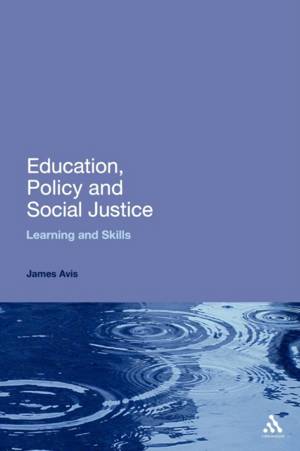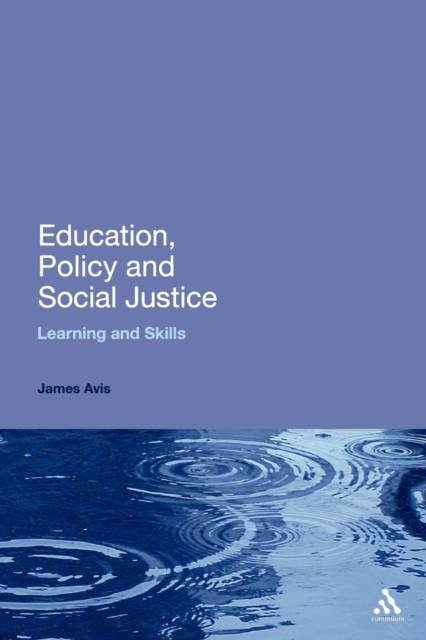
En raison d'une grêve chez bpost, votre commande pourrait être retardée. Vous avez besoin d’un livre rapidement ? Nos magasins vous accueillent à bras ouverts !
- Retrait gratuit dans votre magasin Club
- 7.000.000 titres dans notre catalogue
- Payer en toute sécurité
- Toujours un magasin près de chez vous
En raison de la grêve chez bpost, votre commande pourrait être retardée. Vous avez besoin d’un livre rapidement ? Nos magasins vous accueillent à bras ouverts !
- Retrait gratuit dans votre magasin Club
- 7.000.0000 titres dans notre catalogue
- Payer en toute sécurité
- Toujours un magasin près de chez vous
Description
James Avis develops an important argument in this wide-ranging book, in which questions of social justice play a central role. He explores the socio-economic and policy context of education in advanced capitalist societies, and indicates the manner in which the rhetoric of policy-makers distorts the way in which skill is marshalled in the economy. The result is that oppressive and exploitative features of paid labour are underplayed in this rhetoric. He examines the lived experiences of teachers and students in post-compulsory education and explores their contradictory positions. If questions of social justice are to be addressed, an economically driven model of education should be rejected in favour of one that is politically engaged and utilises an expansive model of practice, extending into the wider society.
Spécifications
Parties prenantes
- Auteur(s) :
- Editeur:
Contenu
- Nombre de pages :
- 216
- Langue:
- Anglais
- Collection :
Caractéristiques
- EAN:
- 9781441166425
- Date de parution :
- 22-08-09
- Format:
- Livre broché
- Format numérique:
- Trade paperback (VS)
- Dimensions :
- 156 mm x 234 mm
- Poids :
- 340 g

Les avis
Nous publions uniquement les avis qui respectent les conditions requises. Consultez nos conditions pour les avis.






